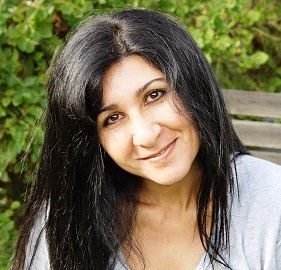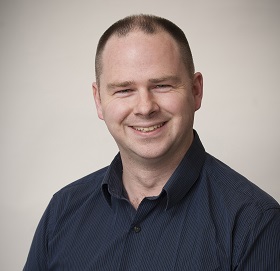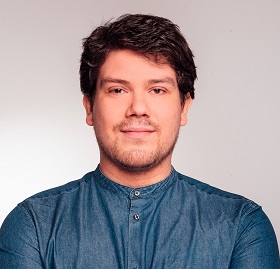Monday, 23 June 2025, 13:30 - 17:30 CEST (Central European Summer Time - Sweden)
Dr Nasrine Olson (short bio)
Associate Professor at the Swedish School of Library and Information Science, University of Borås, Sweden
Dr Raymond Holt (short bio)
Lecturer at the School of Mechanical Engineering at the University of Leeds, UK
Dr Arthur Theil (short bio)
Lecturer in Human-Computer Interaction at the College of Computing at Birmingham City University, UK
Modality
on-site
Room: TBA
Target Audience
- Researchers/ academics
- students
- professionals
- industry
- designers
Requirements for participants
Course participants should bring their own laptop or tablet
Abstract
Sensory impairments can lead to significant challenges in communication and interaction with the world, limiting accessibility and engagement in various contexts. Multisensory communication technologies offer solutions to these challenges by leveraging multiple sensory modalities to bridge these gaps. This course explores the design and research of multisensory communication and interaction technologies, engaging users through multiple sensory modalities such as visual, auditory, and tactile feedback. Participants will learn how multisensory interaction enhances user experience, accessibility, and immersion, with insights gained from several large EU-funded projects focused on cutting-edge communication technologies. Specific emphasis will be placed on inclusive design approaches to ensure accessibility for diverse user needs. The course will provide practical strategies for designing and evaluating multisensory systems, focusing on real-world applications such as virtual reality and wearable technologies.
Benefits for attendees
- Understand key principles of multimodal representations and multisensory communication.
- Explore the benefits of multisensory systems in improving accessibility and user experience.
- Learn design and evaluation techniques used in large-scale, EU-funded multisensory projects.
- Apply multisensory design methods to real-world scenarios based on EU project experiences.
Aims
- To provide participants with an understanding of multisensory experiences and the ways in which these can be used to make communication and interaction more accessible to people with sensory impairments.
- To give participants practical experience of different sensory modalities and how these can be combined to create multisensory experiences.
- To highlight the potential of multisensory technologies in addressing real-world accessibility challenges and improving user engagement.
Objectives
- Introduce participants to the principle of multisensory design and examples of its use.
- Present examples of how multisensory design can address challenges in accessibility and interaction.
- Introduce principles of inclusive- and participatory design with a focus on their application in multisensory systems.
- Provide participants with practical experience of a range of sensory modalities (visual, haptic and auditory) to demonstrate their capabilities and limitations.
Course Content
- Introduction to Multimodal Representations and Multisensory Communication
- Designing for Sensory Modalities: Visual, Auditory, Tactile, and Beyond
- Experience-Based Insights from EU-Funded Multisensory Research Projects
- Evaluating Multisensory Interfaces: Best Practices and Real-World Applications
Hands-on part
Case Study and Interactive Activity: Hands-on experience of Multisensory Interaction Prototypes. The instructors will bring a range of different tools and prototypes (e.g., haptic vests, Peltier elements, Linear Magnetic Rams, different vibration motors, etc.), to experiment with different sensations and haptic illusions, providing the participants first hand experiences of haptics.
Bio Sketch of Course instructors

Nasrine Olson (PhD, Docent) is an Associate Professor in the field of Library and Information Science at SSLIS, University of Borås, Sweden. Core research interests relate to issues of power and the relationship between day-to-day action, and broader societal structures. In the more recent years the focus has been on the societal implication of ICTs and information practices that enable or hinder the potential for equal opportunity for all. Towards this, Nasrine has adopted participatory practices in her research and has developed methodologies and technical innovations for haptic communication. She has also been instrumental in creating research environments that promote, and lead to, improved inclusive technologies and environments by coordinating projects such as EU-funded projects SUITCEYES (H2020 – 2018-2021 -- among others it included development of haptic technologies for communication with, and by, users with deafblindness) and MuseIT (HE – 2022-2025 -- among others it involves development of multisensory representation of cultural assets for broader accessibility). Nasrine is also the director of an interdisciplinary research centre called INCLUDE – Centre for Inclusive Studies, where through critical examination the ideology of normal, the unequal treatments of societal members will be explored.

Raymond Holt (PhD) is a Lecturer in Product Design in the School of Mechanical Engineering at the University of Leeds (UK), where he is a member of the Institute of Design, Robotics and Manufacture, the Immersive Cognition Lab and the Centre for Disability Studies. His core research interests are the study of haptic perception and prehension and the cocreation of assistive and rehabilitation technologies with users. He has led co-creation activities on two rehabilitation robotics projects funded by the National Institute for Health Research, and led the Leverhulme Trust-funded project Facilitating Meaningful Play for Disabled Children through Participatory Design. He has recently been part of the European Commission funded project SUITCEYES, where he led activities on the sensing and navigation elements, and is currently extending this work as part of the Wellcome Trust-funded Imagining Technologies for Disability Futures project.

Arthur Theil (PhD) is a Lecturer in Human-Computer Interaction at the College of Computing at Birmingham City University (UK). His research focuses on the study of novel interaction techniques to support users with diverse sensory abilities. His current focus is on designing accessible interfaces for individuals with multisensory impairments (e.g. deafblindness). Arthur has also conducted accessibility research with older adults who experience age-related changes in sensory, cognitive, and motor abilities. In addition to conducting academic work, Arthur currently also serves on the ACM SIGCHI Accessibility Committee and is part of the Program Committee for the ACM SIGACCESS ASSETS Conference.
Course history
- Bridging Sensory Gaps - Innovations for Inclusivity, talk at DARIAH, Dec 2023
- Designing the Ultimate Tracking Device, Interactive Workshop Session, University of Leeds, Seminar on Tracking People: Technological and Methodological Challenges, June 2017
- Designing the Ultimate Wearable, Interactive Workshop Session, Birmingham University Network on Wearable Technologies, June 2023
- Fusing Technology and Inclusion to Amplify Diverse Voices and Cultures, Panel seminar at the Gothenburg book fair, September 2024
- Haptic Communication and Inclusive Design, lecture, Birmingham City University, June 2024
- Haptic Communication for Inclusion, Accessibility, Participation and Equal Opportunities for All, talk at the VIBRA network symposium, August 2024
- Haptics for Inclusion, Demos and ideation, University of Borås, Nov 2023
- Inclusion through Multisensory Interactions, talk at the Symposium Towards Access for all, October 2022, University of Borås
- Inclusive Cultural Heritage Museum for People with Disabilities: Results of Research in MuseIT, presentation at the Inclusive Museum Conference, Sept 2024
- Leading Sustainable Change through Inclusion and Innovation, talk at young leaders’ network, Spader ess, Sweden, April 2024
- Multidisciplinary Perspectives on Designing Accessible Systems for Users with Multiple Impairments: Grand Challenges and Opportunities for Future Research, Workshop at ASSETS, Oct. 2022
- Participatory Ideation, Workshop at IRCAM, Jan 2023


